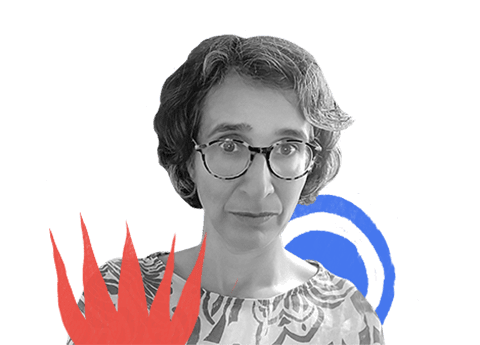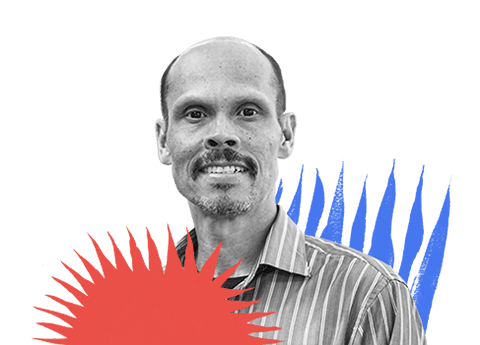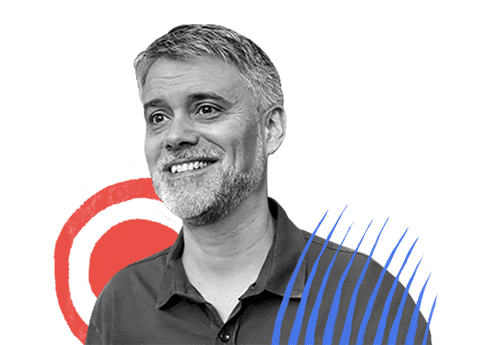Nhe’éry, Plants and Literature
FLIP in the Rainforest
(Literary Festival Guidance Document, 19th FLIP, 2021)
The COVID-19 pandemic has claimed millions of victims, closing borders, exposing contradictions and changing social relations. The virus has starkly exposed humanity’s problems and dilemmas, beginning with inequality among people and the increasing destruction of the environment. A consideration of other ways for human beings to be in the world is gaining momentum.
Planet Earth has been through an immense tragedy. It would be impossible to minimise the suffering this has caused, and imprudent to wish for a simple return to “normality” – a normality that has created the crisis and can only worsen it. Instead, we face an urgent need to imagine other ways of thinking about life on earth, ways of thinking that range more widely than our well-tried anthropocentric attitudes and structures, so that we can prepare the ground for a change that will help us prevent the environmental catastrophe that threatens to engulf us.
This is the starting point for the programme for this year’s Paraty International Literary Festival.
FLIP, the festival that began in Paraty, in the State of Rio de Janeiro, in 2003, and which has quickly become one of the most important cultural gatherings in South America (Annexe 1), is offering itself at this critical moment as a platform for imaginative endeavour. Over the years, FLIP has established itself as one of the main international literary gatherings in the region, a meeting place for writers and thinkers from all over the world (Annexe 2).
FLIP has flourished in a town where more than 90% of the territory is occupied by socio-environmentally protected areas, in a region recognised as a UNESCO Mixed World Heritage Site, a title which, in itself, raises the obligation not to separate culture and nature.
FLIP is therefore well-placed to be a laboratory in which other perspectives, languages and worlds are sought, tried, tested and promoted than those that have led us into the cul de sac we are in. Looking out from Paraty – FLIP’s home town, a place where the waters meet the land – we look for inspiration in the forest. During the pandemic, humanity has reduced its mobility and experienced a less frenetic mode of being. These are characteristics more often associated with the plant kingdom. It’s time we thought with and learned from plants.
Nhe’éry (pronounced nheeri) is the name the indigenous Guarani people have for the Atlantic Rain Forest. It is a word that conveys the pluriversality of the forest. Also, as the xeramõi (elder) Carlos Papá explains, Nhe’éry means “where souls bathe”. Besides this, Nhe’éry also conveys messages through word threads, or associations, or ideas.
There is, of course, already a well-established relationship between literature and the world of plants: Guimarães Rosa’s buriti palms, Emily Dickinson’s Herbarium, Clarice Lispector’s Botanical Garden and flowers, Fernando Pessoa’s forests, Ursula K Le Guin’s Forest-planet, Mãe Stella de Oxóss’s sacred leaves, Basho’s banana tree, Amos Tutuola’s palm trees and jungles, Waly Salomão’s cross pollination, Oswald de Andrade’s “the school and the forest” are examples. So literature already points the way for us to place a higher value on forms of life other than the human. We need to follow that way a bit further to discover whether it can help us find a path away from planetary disaster.
A collective of curators
In the forest we see diversity rather than homogeneity, collaboration rather than competition, regenerative capacity, communications networks established in the air and on the land between tree roots and fungal hyphae, alliances formed by waters, stones, plants, winds, insects, birds and all other living things. So the 19th FLIP will be arranged for the first time by a “curatorial forest” – a collective of curators.
Hermano Vianna, an anthropologist by training (he has a doctorate in social anthropology from the Federal University of Rio de Janeiro), author, journalist, television producer, music festival curator and master mixer of information, will coordinate the work of this curators’ collective. Its other members are:
Anna Dantes, a book publisher who for the past decade has collaborated in projects at Escola Viva Huni Kuin and is one of the founders of Selvagem – Study cycle on life, an academic investigation into the relationships between indigenous, scientific and artistic knowledge.
Evando Nascimento, writer and philosopher, pioneer in the reflection on literature and plants in Brazil. He was a student of Jacques Derrida at EHESS and Sarah Kofman at the Sorbonne. An award-winning novelist, he has also taught at the Federal University of Juiz de Fora and at the University Stendhal de Grenoble.
João Paulo Lima Barreto, a native Tukano anthropologist and founder of the Centro de Medicina Indígena in Manaus. He has a degree in philosophy and was the first indigenous person to gain a Master’s in Social Anthropology from the Federal University of Amazonas in Manaus.
Pedro Meira Monteiro, professor of Brazilian literature and culture at Princeton University and one of the founders of the Poéticas Amazônicas Workshop, at the University’s Brazil LAB, which focuses on media, fine arts, literature, photography and cinema produced in the Amazon. He has a Master’s in sociology and a PhD in Theory and Literary History from the State University of Campinas, as well as a DEA [spell out] from the University of Versailles Saint-Quentin-en-Yvelines.

Hermano Vianna

Anna Dantes

Evando Nascimento

João Paulo Lima Barreto

Pedro Meira Monteiro
The programme
With dates set for 27th November to 5th December 2021, FLIP will be a laboratory designed to examine teachings from the perspective of Nhe’éry. The Festival will offer space for reflection on the issues of the contemporary world and on ways in which we might sensibly address our planet’s crisis. Our investigations will range across the artistic, literary, semantic, cognitive, environmental, political and socio-economic. We will (as gently as possible) bang together the heads of creators, thinkers and knowledge-holders who have turned to the past, to ancestries and other models of social organisation and different views on knowledge, to help us find a way to reverse out of our cul de sac.
In the general programme, round table meetings and video presentations will attempt a hybrid format, between the real and the virtual, at this still delicate moment in the COVID-19 pandemic. Everything will be laboratorial in character, in construction, based on intellectual and sensory experimentation. Everything will be a search for new paths that might lead us to a fairer, more equal, sustainable and creative world. It will be, as it has been since its inception, a FLIP in defence of art and literature, but also an enquiry into and celebration of the vegetation that creates, sustains and protects the planet and life in its multiple configurations.
Homage
Following the wisdom of Nhe’éry, this year, instead of one honored writer, FLIP will conduct a collective homage to all the thinkers, knowledge-holders and indigenous leaders whose lives were cut short by COVID-19: people of the forests of Brazil, disciples of plants. FLIP 2021, inspired by such projects as the moving Memorial Vagalumes (Firefly Memorial), hopes to cultivate and spread their knowledge throughout the world. They were human encyclopaedias, living libraries who must not disappear. To name but a few:
Higino Tenório, writer, healer, specialist in cave and rock art, teacher and founder of the first school for the Tuyuka people;
Feliciano Lana, internationally recognised visual artist and writer, a member of the Desana people;
Zé Yté, key collaborator on the most important studies on Kayapó ethnobiology;
Maria de Lurdes, guardian of the healing plants of the Mura people;
Meriná, teacher of the healing and blessing rituals of the Macuxi people;
Alípio Xinuli Irantxe, flute-master of the Manoki people;
Domingos Venite, Guarani leader of the largest indigenous reserve in the state of Rio de Janeiro, campaigner for a new indigenous health policy.
We will also celebrate, in our annual homage, the work of many other members of indigenous peoples. By honouring their names, FLIP will honour all other victims of the pandemic.
Annexe 1: Leading authors, Brazilian and international, who have attended FLIP
Flip has hosted a wide variety of authors from a wealth of origins, trends and languages. Among the international names are Margaret Atwood, Alice Walker, Svetlana Aleksiévitch, Chimamanda Ngozi Adichie, J. M. Coetzee, Anne Enright, Jonathan Safran Foer, Nadine Gordimer, Karl Ove Knausgård, Ian McEwan, Toni Morrison, Amós Oz, Paul B. Preciado, Salman Rushdie. Among the Brazilian guests, we are lucky to have Adélia Prado, Antonio Candido, Caetano Veloso, Conceição Evaristo, Davi Kopenawa, Ferreira Gullar, Milton Hatoum, plus several young writers.
Annexe 2: A brief history of Flip
Flip was created in 2003 to promote, in Paraty, a gathering experience permeated by a broader concept of literature – considering that fiction shares common ground and nurtures itself from architecture, design, journalism, urbanism, science, education, basically everything written in a book.
Each detail in Flip is thought to have the public space’s transformation as a departure point. As time passes, each one of these interventions assumes a deeper emotional meaning by its relation with its visitors and the local community. In such a way, Flip stretches its presence throughout the year.
“The open city as an experience of Flip in Paraty is an exchange that encourages, for nineteen years now, a continuous communal dialogue. In such encounters, the narratives are incomplete because they are made from the experiences of each person”, says Mauro Munhoz, Flip’s creative director.
As the Covid-19 pandemic demanded from us the search for new paths, Flip sought to expand its means of action. In 2020, with its first virtual edition, it became clear that working with the community of Paraty was not only possible during the pandemic as it was profoundly necessary.
